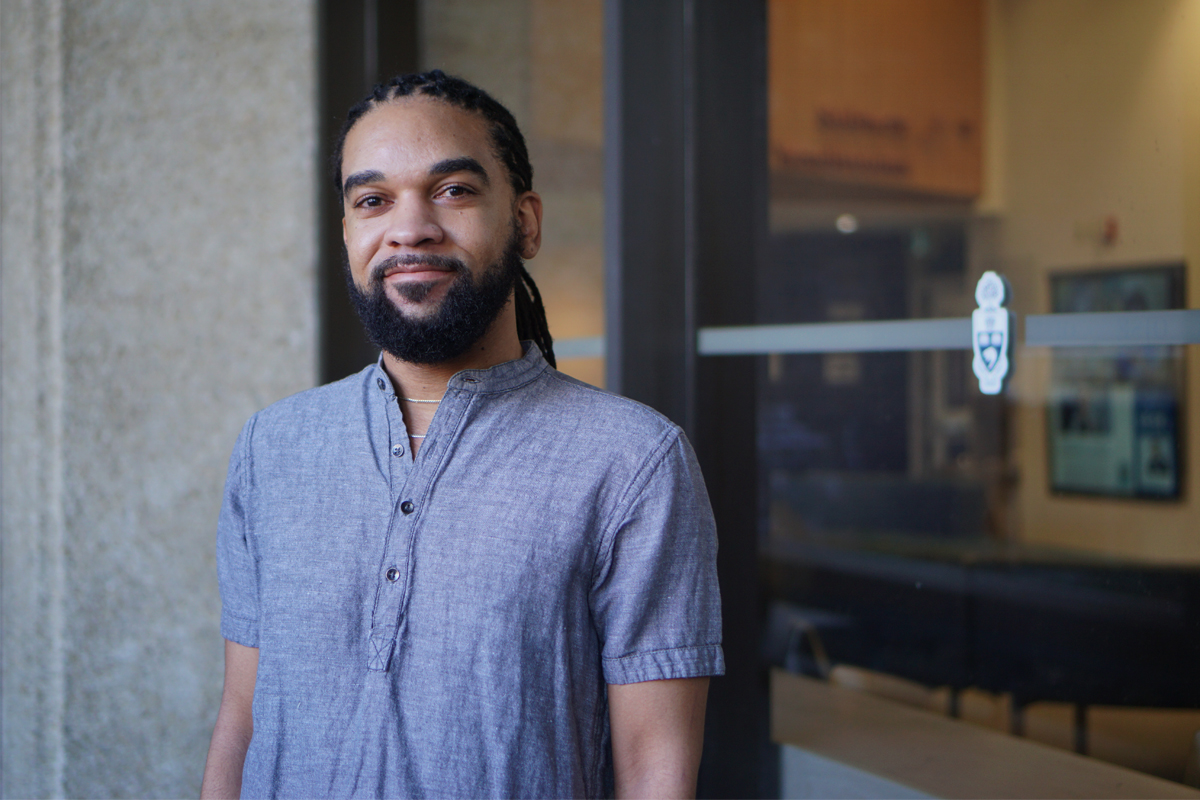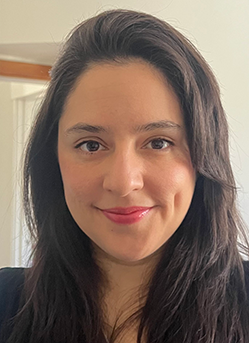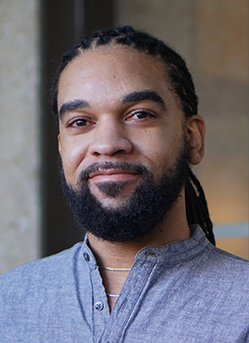OISE doctoral students prepare to showcase their research on educational leadership, participatory youth research and climate education at AERA 2025

By Marianne Lau
Each year, the American Educational Research Association (AERA) annual meeting brings together scholars from around the world to share the latest research in education.
For OISE doctoral candidates Isabel Núñez and John Pierre Craig, AERA offers a valuable opportunity to engage with a global community of scholars, receive feedback on their work, and contribute to ongoing discussions in their fields.
OISE News sat down with them to learn what they hope to gain from the experience.
Isabel Núñez: Examining Leadership Practices and Policy Implementation

Núñez, a doctoral student in the Department of Leadership, Higher and Adult Education, will be presenting two research papers at AERA. Her research contributes to the discussion on educational leadership and policy implementation by emphasizing a practice-oriented perspective, she says.
Her first paper, a systematic literature review, explores the "practice turn" in leadership research over the past two decades. By examining different conceptualizations of leadership as a practice and their implications for education policy studies, Núñez aims to shed light on how these perspectives contribute to understanding leadership practices in policy implementation.
Núñez’s second paper, a collaboration with two Chilean colleagues, is a longitudinal study examining the autonomy of school principals during Chile’s recent educational reform. This research offers insights into how principals navigate policy demands and exercise autonomy in complex, high-pressure educational environments.
“By documenting how leadership unfolds in complex institutional settings, my work offers insights into the dynamic relationship between policy design and local adaptation, contributing to a more nuanced understanding of leadership during educational reform,” Núñez says.
At AERA, Núñez looks forward to connecting with fellow researchers and students, exploring collaboration opportunities, and receiving feedback from both peers and senior researchers.
“Doing a PhD can be isolating,” says Núñez. “I’m excited to meet scholars working on leadership and policy studies, gain insights into emerging research, and explore innovative methodologies that can strengthen both my current studies and my broader doctoral research.”
- Núñez will present her paper, "A Systematic Literature Review of the Practice Turn in Leadership: Implications for Educational Policy Studies " in the Engaging Leadership and Change in Educational Systems and Practices Roundtable Session on April 26, from 1:30 to 3:00 p.m., at the Colorado Convention Center, Four Seasons Ballroom 2-3.
- Núñez will present her second paper, “A Longitudinal Study on School Principals' Autonomy as Street-Level Managers during Unprecedented Educational Reform,” at the Cases of Principals Leading Improvement and Reform Paper Session on Apr. 27, from 8 a.m. to 9:30 a.m., in The Colorado Convention Center, Meeting Room Level, Room 403.
John Pierre (JP) Craig: Centring Youth and Land in Climate Education

John Pierre Craig’s research on land education and climate justice will offer an often-underrepresented perspective at AERA.
In Denver, Craig will present a paper based on a land education program they co-facilitated through the Tkaronto CIRCLE Lab, founded by Professor Eve Tuck. In the program, graduate researchers worked with Black and Indigenous youth to explore how they understood climate justice and their envisioned climate futures.
A key research method they used was the “Problem Tree,” a qualitative method of collaborative conceptual mapping. Using sticky notes and large sheets of paper, graduate and youth researchers mapped the issue of climate change not being prioritized in society by identifying its everyday manifestations (the leaves), social attitudes (the trunk), and deeper structures (the roots) that sustain it.
Through this exercise, “anthropocentrism” — the belief that humans are the central focus of existence — emerged as a root cause of climate injustice, empowering youth researchers with a new concept to understand climate justice.
Craig's interest in how Black and Indigenous youth make meaning of climate change began during their undergraduate years when they participated in campus-based climate programs. These opportunities were largely STEM-focused, and Craig was often one of the few Black or brown students present. This lack of representation, which didn’t reflect the care and concern witnessed in their own communities, prompted Craig to explore how environmental policymaking and climate discourse have historically excluded racialized communities.
“Those experiences eventually led me toward participatory research with young people and land education as possible ways to address some of these disconnects,” says Craig, a PhD candidate in the Department of Social Justice Education.
Craig is particularly excited about the opportunity to share the Problem Tree method with a broader audience at the AERA, noting its potential to transform how educators and researchers engage with youth on climate issues. “It’s a well-structured, accessible, and generative method for developing shared understandings and proceeding into more focused analyses and action plans,” Craig says.
Craig hopes this research will contribute to conversations that shift how educators think about young people and land. “Both are often treated as passive or in need of stewardship, rather than recognized as active participants in shaping knowledge and possibility.”
"I hope that in encountering this work, educators reflect on how beginning with young people, especially through their relationships with the Land on which they live, can alter how we understand and design education for climate change and climate justice."
- John Pierre Craig will present their paper, “Humans at the Centre: Black and Indigenous Youth Theorizing Anthropocentric Land Relations,” at the Confronting Colonial Legacies: Healing and Justice in Education Paper Session on Apr. 26, from 1:30 to 3 p.m., at The Colorado Convention Center, Meeting Room Level, Room 708.